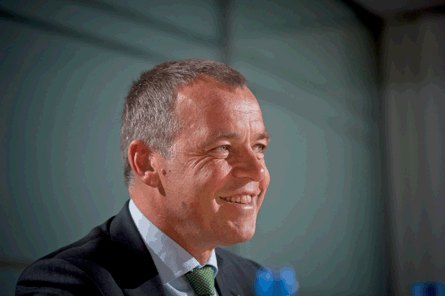FlightGlobal is the global aviation community’s primary source of news, data, insight, knowledge and expertise. We provide news, data, analytics and advisory services to connect the aviation community globally and help organisations shape their business strategies, identify new opportunities and make better decisions faster.
Interview: Aer Lingus chief executive Christoph Mueller

Aer Lingus has just turned 75 yet its recent history has been as taxing as anything in its past. On the one hand its story is the same as any other mid-sized European national carrier with a much-loved brand battling for relevance in the ultra-competitive world sandwiched between network giants ...
Keep reading this article by becoming a FlightGlobal member now
PLEASE REGISTER FOR FREE OR SIGN IN TO CONTINUE READING

You have reached your limit of free articles for this period. Register for a FREE account to read this article and benefit from:
- Increased access to online news and in-depth articles from:
- FlightGlobal Premium covering the global aviation industry
- Airline Business providing insight for business leaders
- Weekly newsletters on topics across the industry




















